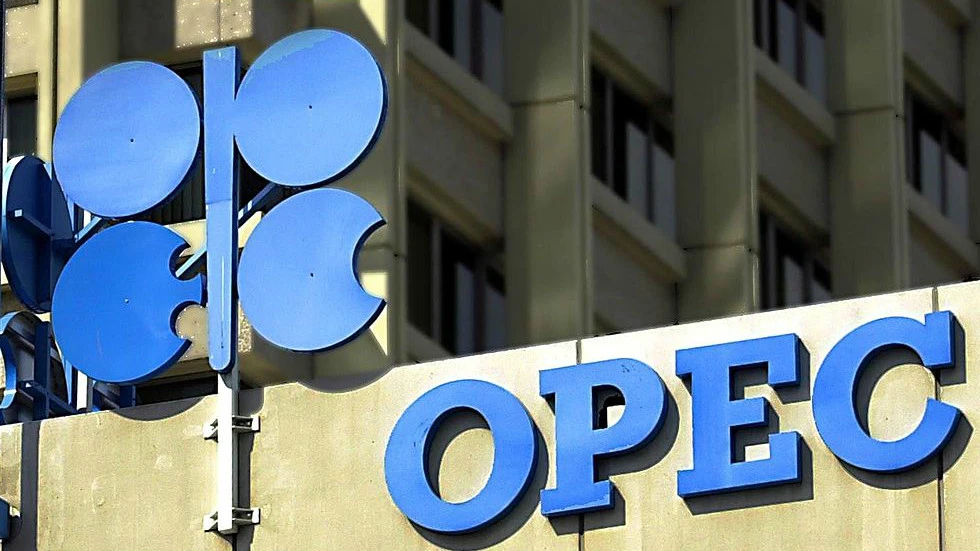OPEC+ is set to hold a critical meeting on Wednesday in Vienna to decide whether to cut production, a move that would drive up the price of oil.
Energy industry analysts say the cut could be as much as 2 million barrels per day, a move that would likely contribute to higher gas prices in the United States and inflation more generally.
It would also serve as a diplomatic blow to the White House, which has sought to get Saudi Arabia and other producers to keep production up as sanctions on Russia raise energy prices around the world.
Over the summer, President Biden encouraged OPEC+ to increase production to bring down prices. Following a visit from Biden to Saudi Arabia in July, the group raised its output levels by a slender margin of 100,000 barrels a day starting in September.
Other moves by the administration could be irritating OPEC+.
In July, the administration made its fifth emergency sale from the U.S. strategic petroleum reserve since November in a bid to keep energy prices at manageable levels, competing with OPEC+ in the process.
“This is probably a little bit of payback,” Phil Flynn, an analyst with the Price Futures Group, said in an interview. “The Biden administration early on was saying they were going to use their strategic reserve to teach OPEC a lesson. Back in November they called out OPEC to raise production and OPEC didn’t see it that way. And so the Biden administration released oil from the reserve to try to cool down gasoline prices.”
“But the strategic reserve isn’t big enough to control prices for an extended period of time,” Flynn said. “And even though it might have had some influence on prices for a little while, now you could see prices getting up higher than they would have been, because there wasn’t a production response from the oil companies. Now OPEC has more control over the market.”
A White House spokesperson declined to comment on the upcoming decision from OPEC+ but noted the White House objective of keeping energy markets “sufficiently supplied.”
“We are not a party to OPEC+ and I’m not going to comment on what it may or may not do. Our focus has been on taking every step to ensure markets are sufficiently supplied to meet demand for a growing global economy,” the spokesperson said. “Thanks to the president’s efforts, energy prices have declined sharply from their highs and American consumers are paying far less at the pump.”
A representative for the Saudi Embassy in Washington declined to comment for this story.
Any increase in U.S. gas prices could have an impact on the upcoming midterm elections, which Republicans want focused on inflation and the economy.
The petroleum reserve has long held geopolitical significance in relations between the U.S. and Arab states. Congress created the strategic reserve in 1975 in response to an oil embargo enacted by Arab members of what would become OPEC against countries that supported Israel in a 1973 Arab-Israeli war.
Oil prices have been declining since June from above $120 a barrel to just above $80 a barrel. Some economists see this as a sign of declining demand as forecasters fear a global recession.
One industry source said the OPEC+ announcement is indicative of the worsening relationship between the U.S. and Saudi Arabia, the group’s top oil producer. Biden had criticized the Saudi human rights record, and the murder of dissident journalist Jamal Khashoggi had become a flashpoint in the relationship.
The industry source suggested Riyadh has seen its energy agenda as conflicting with Washington’s for an extended period of time.
“The OPEC countries want to wrest [greater] control of the oil production in the world … and I think they tried to utilize this pandemic as a way to increase their market share,” the source said. However, they added that “the United States over the past decade has become a swing producer globally,” due in large part to the explosion of natural gas production.
Ben Cahill, a senior fellow in the Energy Security and Climate Change Program at the Center for Strategic and International Studies, said the decreases in demand for energy associated with a slowing global economy were top of mind for OPEC+.
“I’m not surprised that OPEC+ is contemplating a cut; they’re defending against downside risk,” he said.
“I think [OPEC+ countries] are signaling to the market that they want to regain control of the narrative,” he added. He pointed to August remarks by Saudi Energy Minister Prince Abdulaziz bin Salman complaining about volatility in the market.
OPEC has said it is also concerned about the strong dollar, which is putting pressure on many world currencies and decreasing revenues for countries that export to the U.S. It blames the dollar’s rising strength on Federal Reserve interest rate hikes.
“The strong rise of the U.S. dollar … is an outcome of considerable monetary tightening efforts by the US Federal Reserve, in combination with uncertainty in the global economy. The strengthening of the US dollar led to rising import costs in non US-dollar denominated economies” in the first half of 2022, OPEC said in its September report on world oil markets.
“Oil demand is forecast to remain driven by ongoing global economic growth, especially by the recovery in travel and transportation, which is projected to lead to robust overall growth in oil demand of 3.1 [thousand barrels per day] in 2022 and 2.7 [thousand barrels per day] in 2023,” the report said.
Meanwhile, the European Union’s sanctions against Russian oil are set to take effect Dec. 5 and discussions of a price cap on the same products are ongoing.
“It’s pretty clear we’re going to lose some volumes from Russia,” Cahill said. “We don’t know how much [but] that’s going to be a de facto production cut from Russia, whether they like it or not.”

